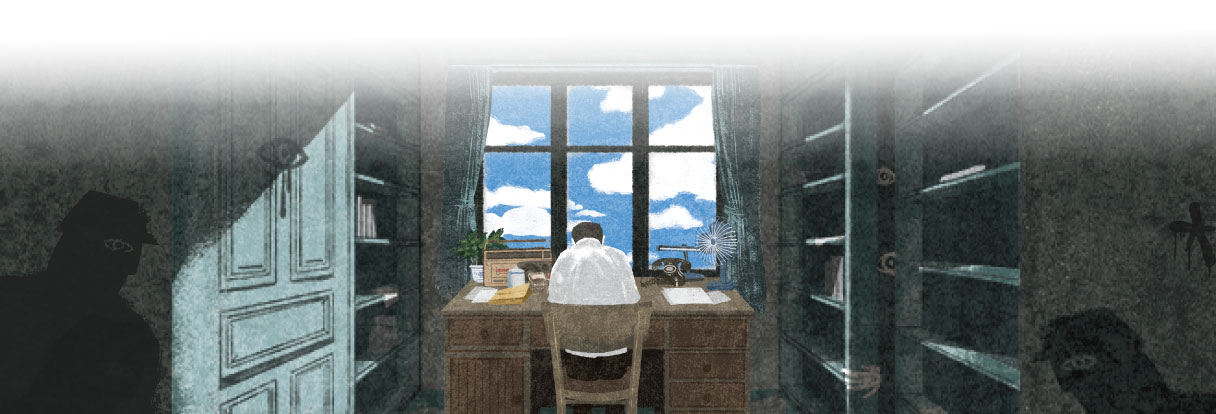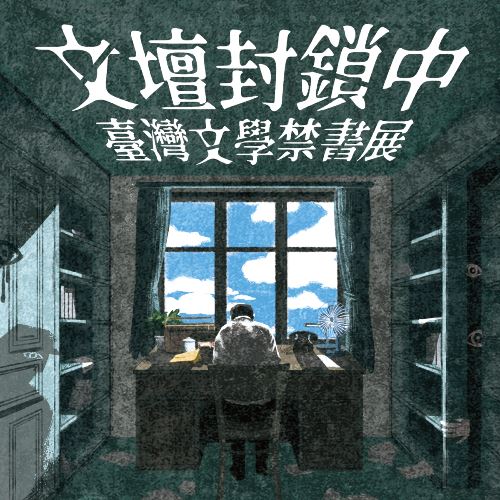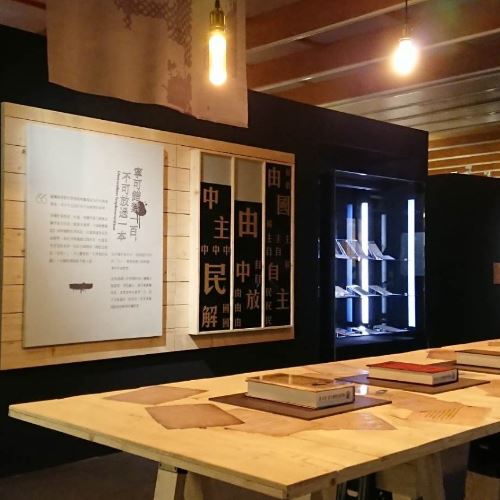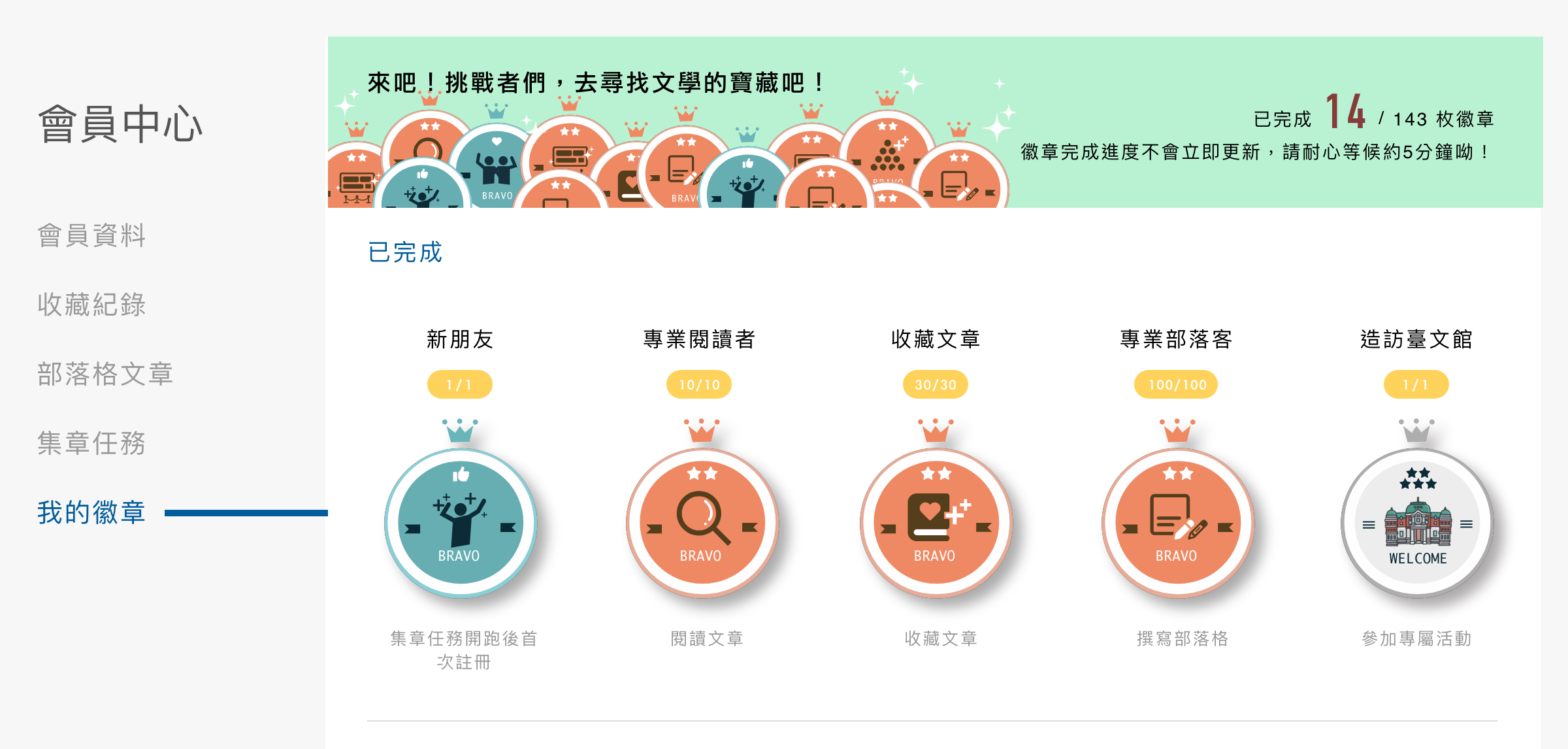Legal Justifications ⭔ The Setting ⭔ Banned before It Could be Published
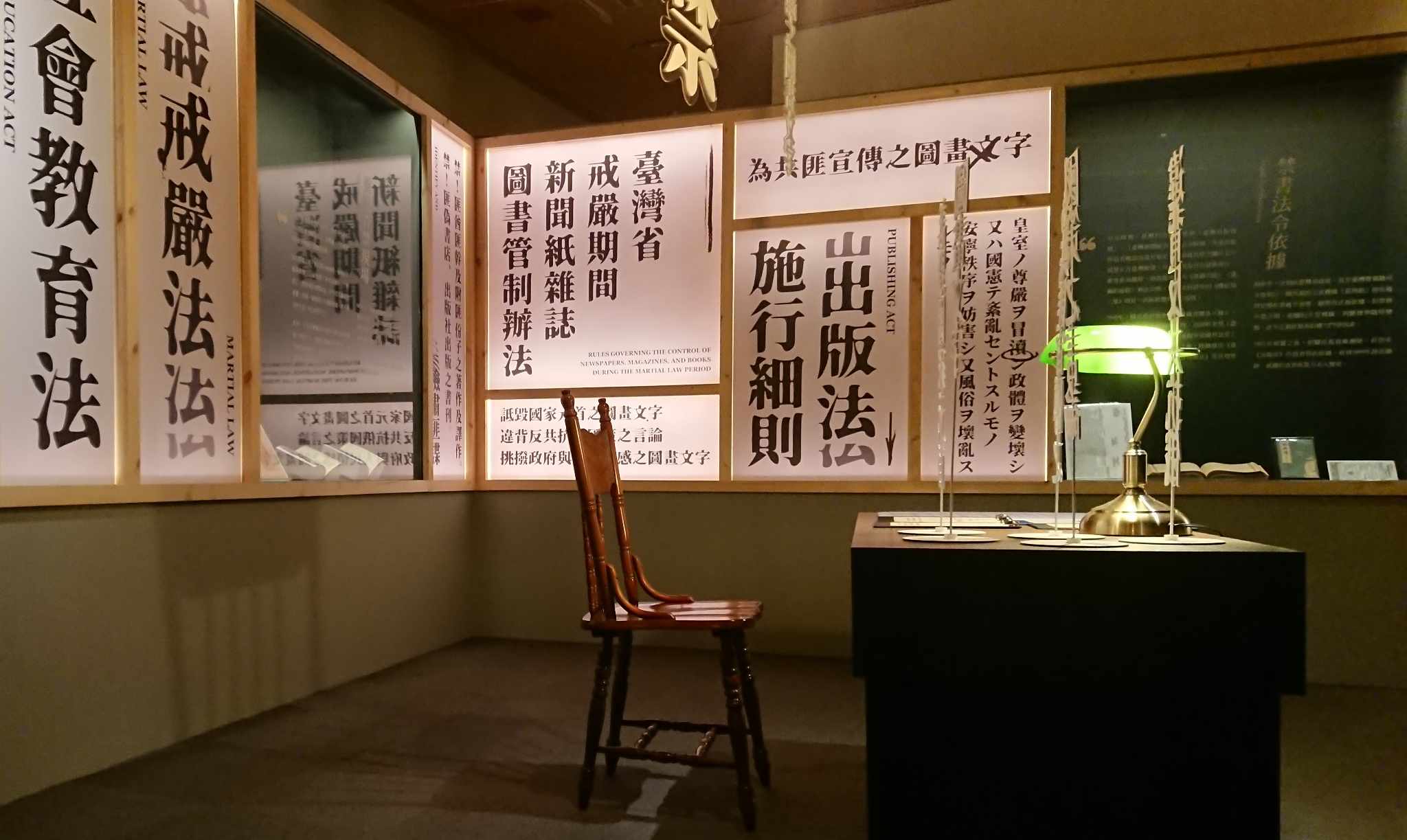
Books were banned if suspected of threatening the regime!
The authoritarian government set the rules for banning books and removed such publications still circulating on the market. Most of these banned publications were stored or destroyed, kept away from public access. In addition, the authority severely punished those who sold, purchased, or read banned books. People could be imprisoned or executed just because they secretly read a book or participated in a book club. Under a fearsome authoritarian regime, literary creation was immensely restricted.
Everything a writer wrote was related to his or her survival. Afraid of crossing the "red line" with left-wing implications in their works, writers often self-restricted and self-censored, which largely impeded their creativity. The censorship system questioned the "appropriateness" of every book. Everyone was speculating, and anyone could be a nark.
Legal Justifications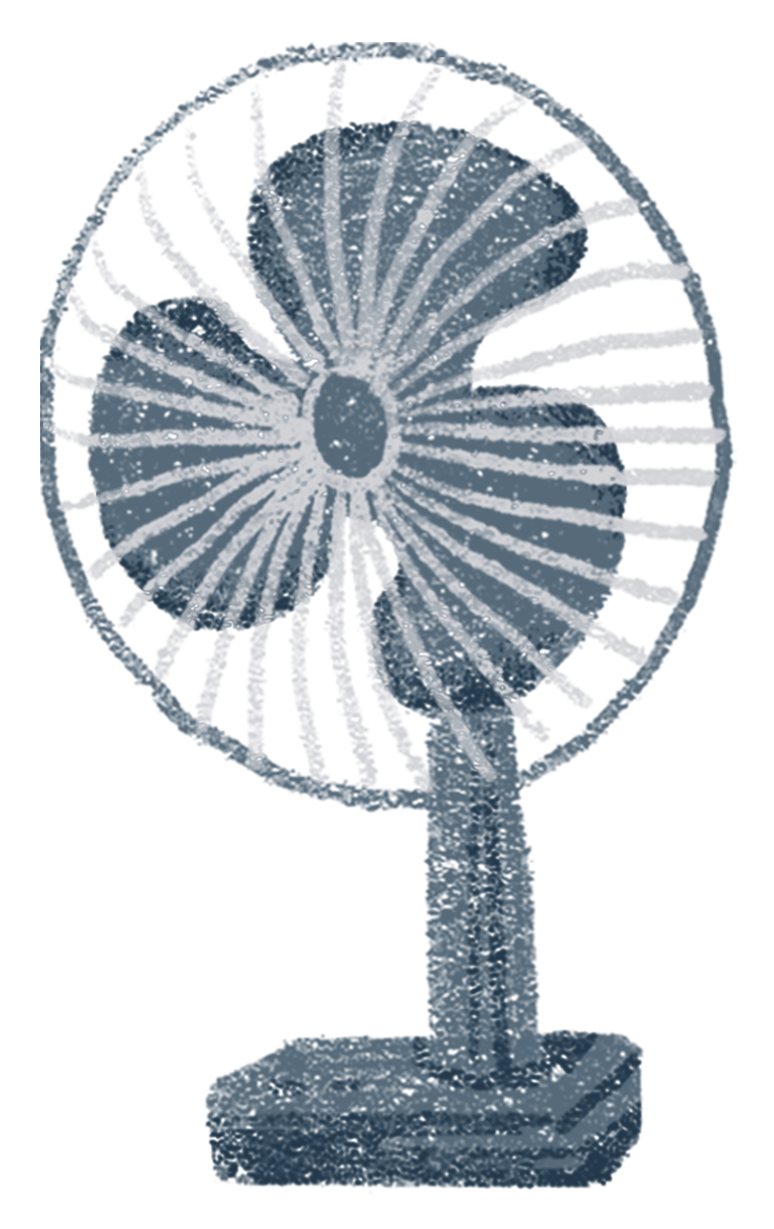
During the Japanese Colonial Era, the publishing industry in Taiwan was restricted by laws, such as Taiwan Publishing Law and Taiwan Newspaper Law. When an author's published writing was considered a violation against the law, the text in question would be blanked out or the entire publication would be banned in Taiwan. After the launch of Japanization in the final years of the Japanese Colonial Era, censorship became even stricter. THE COURTYARD OF JAVA APPLES by Lung Ying-tsung could not be published; THE SECOND VOLUME OF OAK POETRY SOCIETY, which included poems of the Oak Poetry Society, was banned immediately after being published.
In 1946, the Nationalist government issued "Eight Legal Provisions for Banned Books." Apart from banning publications related to the Japanese army, it also prohibited books that "slandered the head of state, misinterpreted the Three Principles of The People, or damaged the interests of the Republic of China." With the implementation of martial law in 1949, various control orders were issued, including "Measures for Censoring Newspapers, Magazines, and Books During Martial Law Period in Taiwan." These orders were implemented by the Taiwan Provincial Government or even the Taiwan Garrison Command. "The Fourth Team," an institute for political propaganda that belonged to the Nationalist Party (Kuomintang, KMT), had the right to determine which books should be banned. Though there were legal grounds for book banning, the associated competent authorities and the standards deciding whether or not a book was banned were still constantly changing, which partly resulted from power struggles among different factions of the party.
After martial law was lifted in 1987, relevant laws were consequently abolished. However, "The Publishing Law" still served as the foundation for book bans. Only until this law was abolished in 1999 did book banning from the authoritarian era disappear.
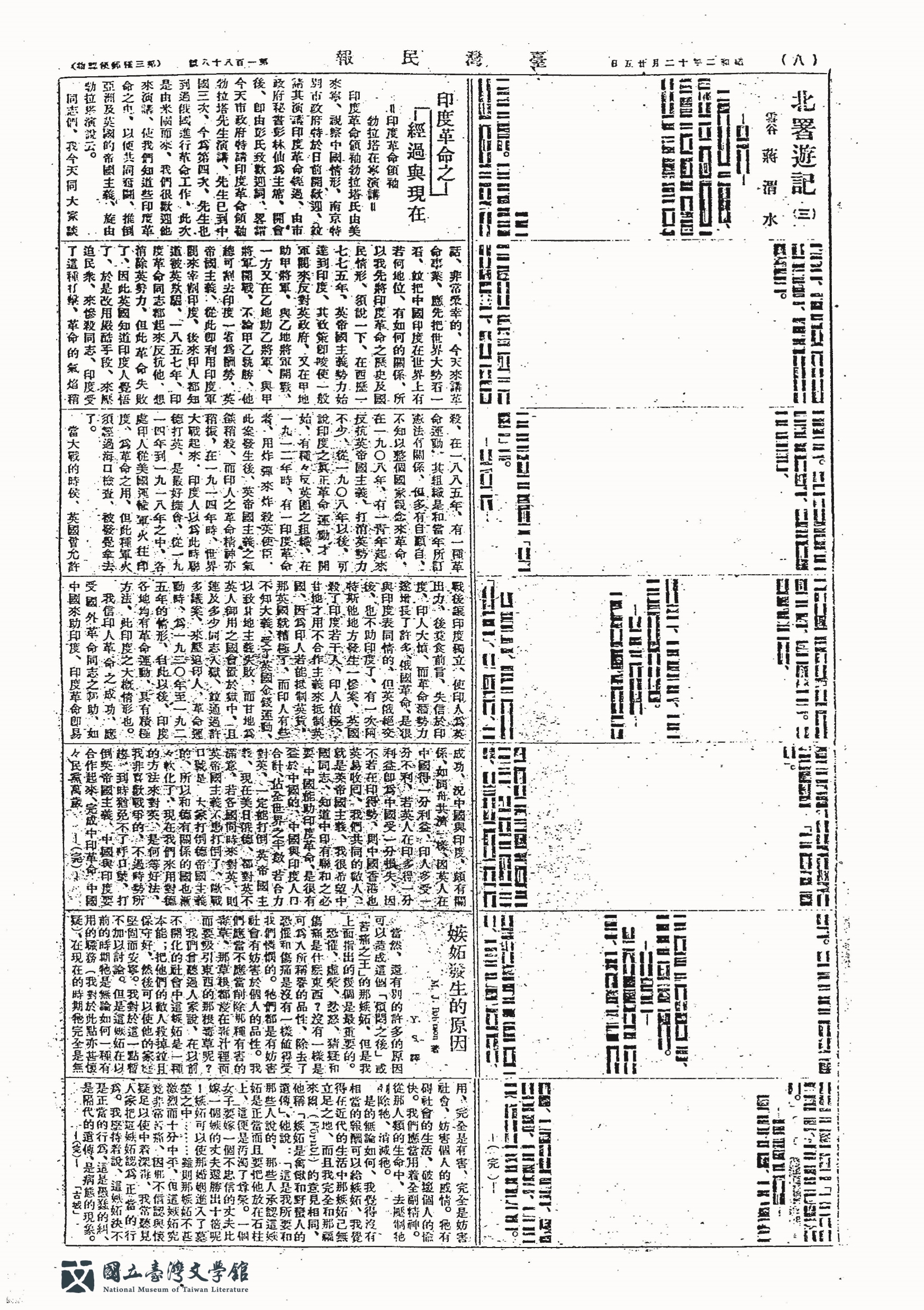
◰ Chiang Wei-shui's "Notes on Trip to Taipei Police Department," THE TAIWAN MINPAO (December 25, 1927)
THE TAIWAN MINPAO was often banned by the Government-General of Taiwan or particular sections would be blanked out because of its support for Taiwanese people. "Notes on Trip to Taipei Police Department" was written by Chiang Wei-shui when he was detained at the Taipei Police Department. The third chapter was completely blanked out upon its serial release.(Kept in National Museum of Taiwan Literature)
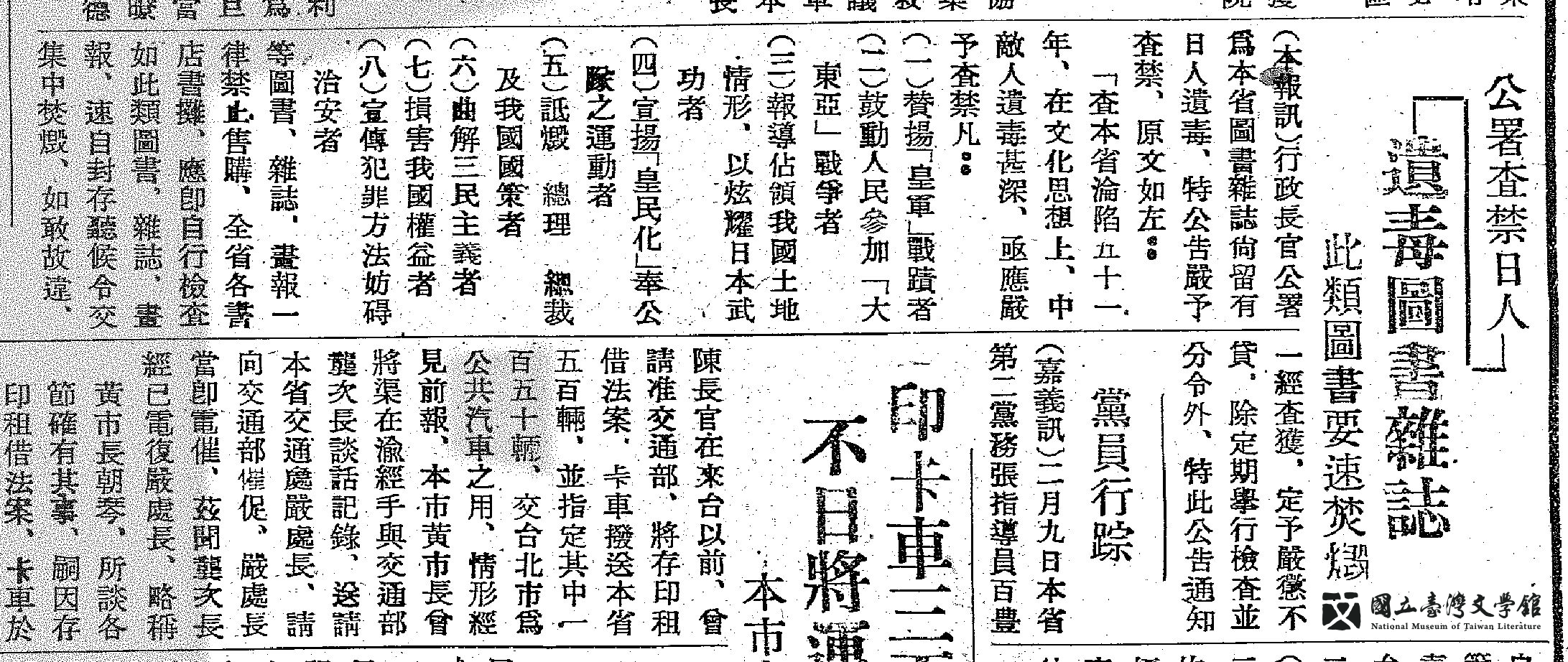

◰ "Japanese Banned by the Government; Japan-influenced Magazines and Books Must be Burned Immediately" (MINPAO, February 14, 1946)
After WWII, to eliminate "Japanese influence," the Nationalist government required bookstores to self-censor and eradicate books that were related to Japan. By doing so, the government violated freedom of speech to pave the way for the subsequent Chinese movement and censorship policies. (Authorized by the Digital Archives Service, National Library of Public Information)

◰ THE COURTYARD OF WAX-APPLE by Lung Ying-tsung
During the Second World War, Lung Ying-tsung planned to publish his collection of novels—THE COURTYARD OF JAVA APPLE. All the novels included in it had already been publicly released. However, when the manuscript was submitted for publication review, the officials advised the inclusion of "Collaboration in The Sacred War." Though Lung Ying-Tsung replaced "Sunset" with "Young Sea," he was still unable to pass the review.(Kept in National Museum of Taiwan Literature)
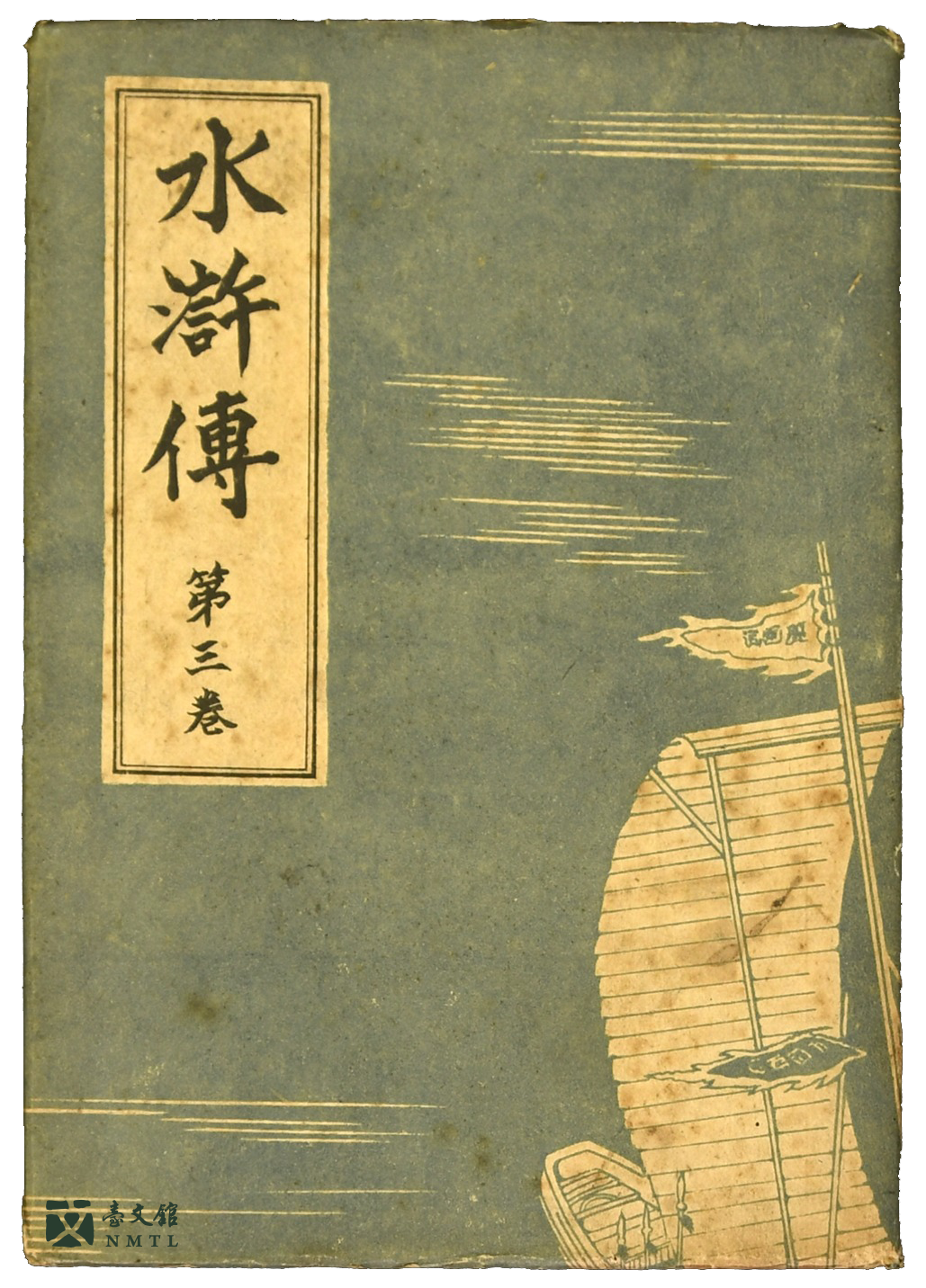
◰ Huang Te-shih's WATER MARGIN-VOL.3
After 1937, the Chinese sections of newspapers were removed, and Chinese publications restricted. As a result, Taiwanese writers translated classic Chinese novels into Japanese. For example, Yang Kuei translated ROMANCE OF THE THREE KINGDOMS. The adapted version of WATER MARGIN by Huang Te-shih was successfully published in instalments; however, when the work was put together for publication, only the first three volumes survived being banned.(Kept in National Museum of Taiwan Literature)
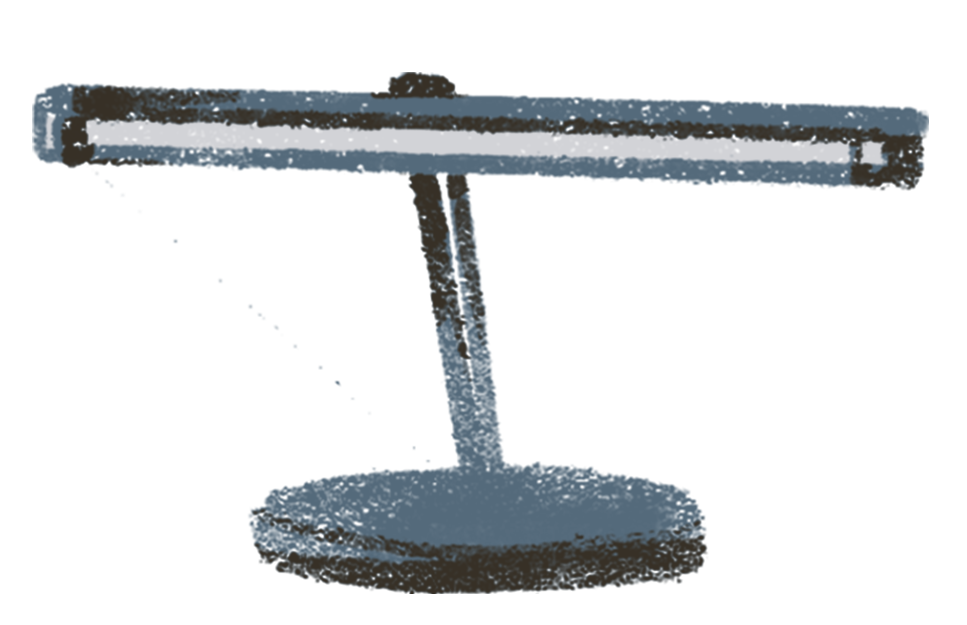
The Setting
After the government issued the order to ban books, intelligence agencies, such as the Security Command, began to ambush bookstores and news kiosks; once a suspicious book was found, it would be inspected and confiscated.
After a banned book was seized, the intelligence agency would provide a piece of mimeograph proof or note with the words "confiscated by law" or "temporarily on loan." The books bookstore owners laboriously sourcing for their stores were confiscated based on a piece of government paper, making it impossible to run businesses. This situation made them immensely frustrated.
In the meantime, the publications being printed in printing houses would also be censored. The pervasive censorship system avoided controversial books from circulating in the market. In the process of a book ban, the intelligence agency required the bookstore owner or the publisher to rip out the part that contained sensitive content before selling the book.
In July 1987, the lifting of martial law was a significant step for Taiwan on its way to democratization. However, publications were still censored based on the Publishing Law; only until 1999 was the law abolished. During this time, book banning was less strict than during the martial law period. For example, enforcers that reported or banned books could receive rewards according to the number of the books involved. Publishers then purposely surrendered a few books to these enforcers so that they could do their job. The rewards they received were considered "protection fees."
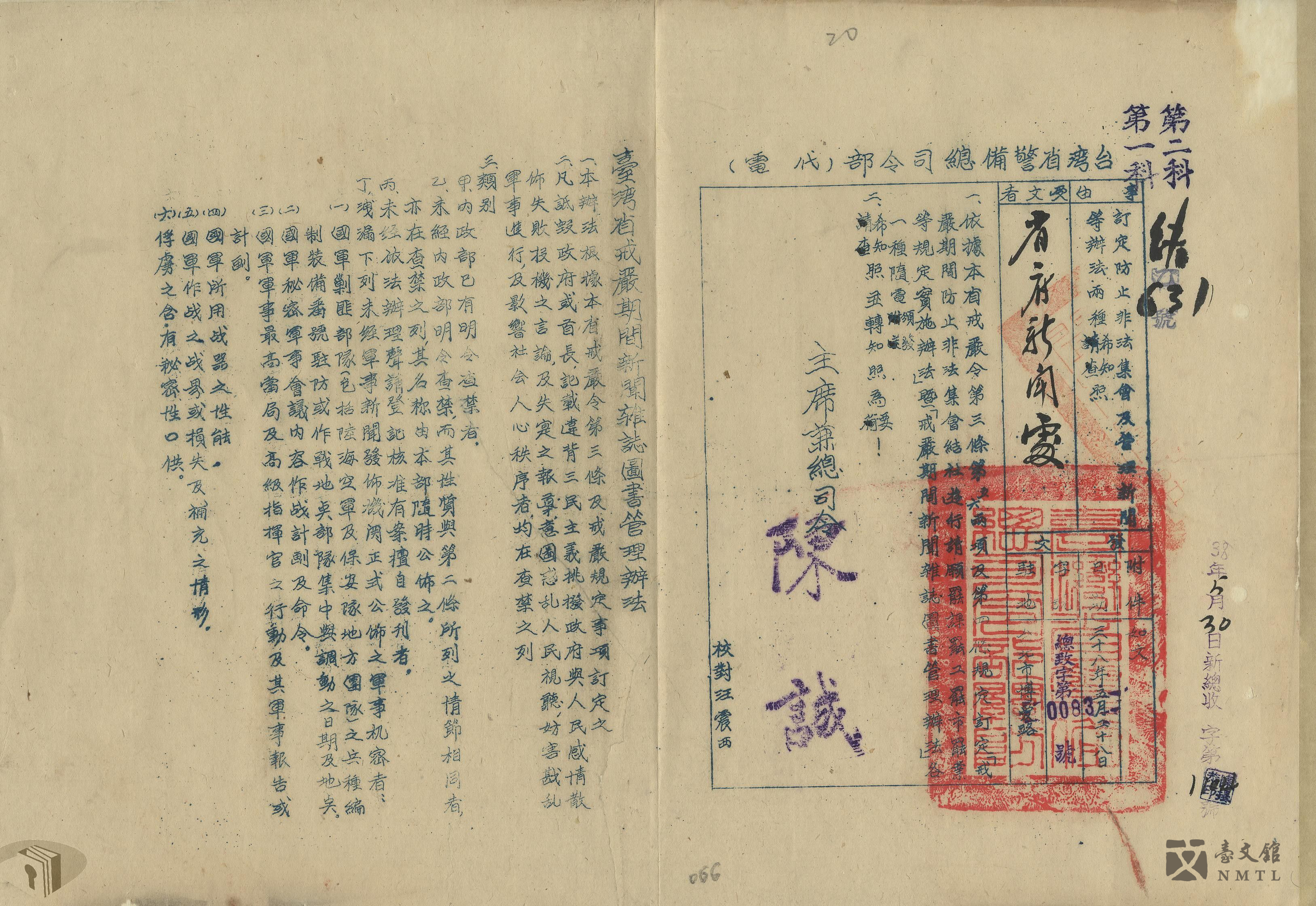
◰ "Rules Governing the Control of Newspapers, Magazines, and Books during the Martial Law Period"
After martial law was established in May 1949, the Taiwan Garrison Command formulated the Rules Governing the Control of Newspapers, Magazines, and Books during the Martial Law Period, which aimed to review and penalize any speech that disrupted society, violated the Three Principles of the People, or sowed discord between the government and citizens. After the martial law was lifted, the relevant measures became invalid.(Authorized by Archives Access Service)

◰ THE LIST OF BANNED BOOKS
This list, published by the Taiwan Provincial Government and the Taiwan Garrison Command, clearly indicates the legal basis for such a list. The indexing of the books was arranged according to the title word count of each book; it also clearly states the basic information of the books and their respective serial numbers. THE LIST OF BANNED BOOKS was updated every few years. This is the edition of October 1966. (Kept in National Museum of Taiwan Literature)
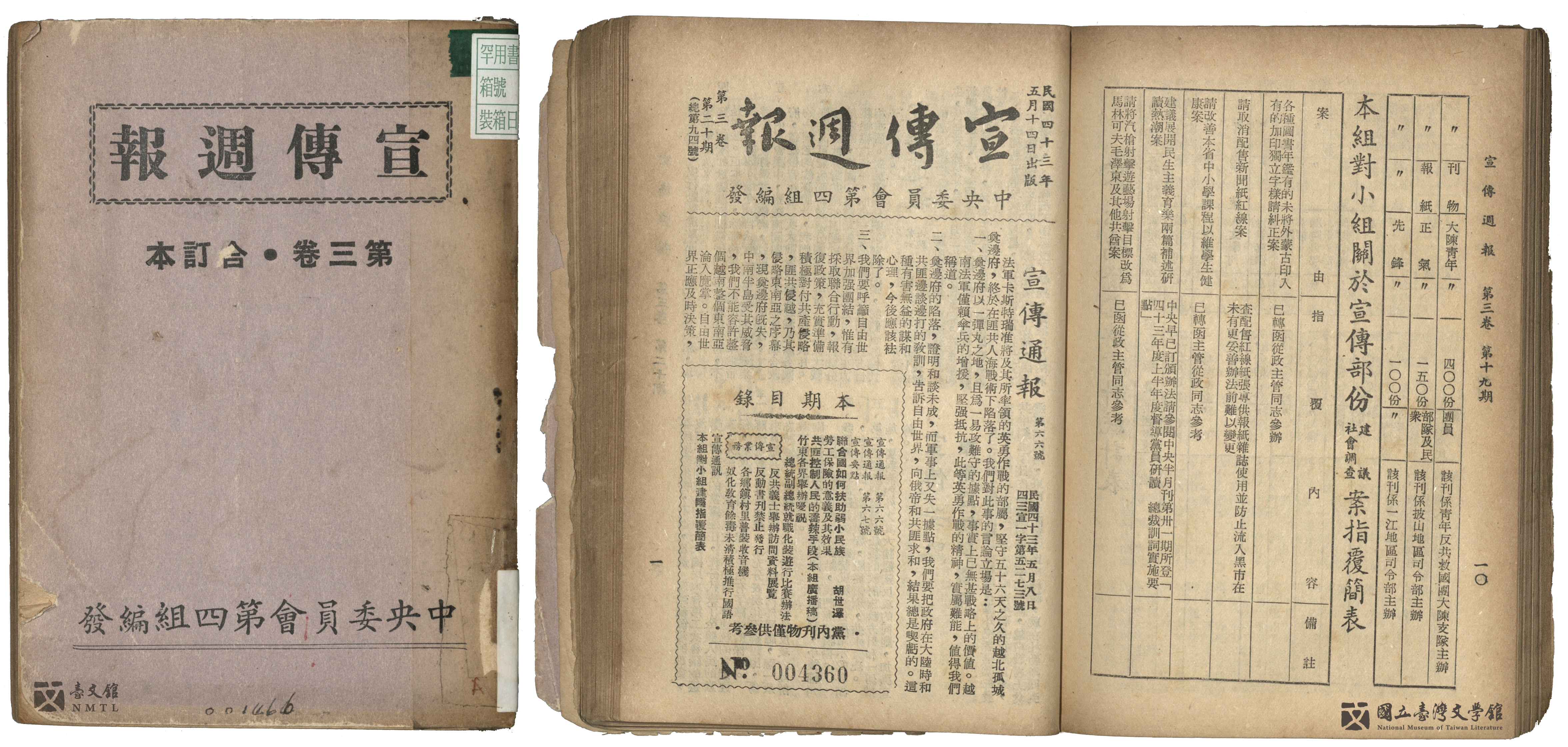
◰ Bound edition of the third volume of PROMOTION WEEKLY
Published by the fourth team of KMT. It was the official newspaper of the highest guiding organization for cultural regulation during the martial law period. It disclosed announcements made by KMT members and aperiodically published news about book and newspaper bans.(Provided by CYCU Chang Ching Yu Memorial Library)
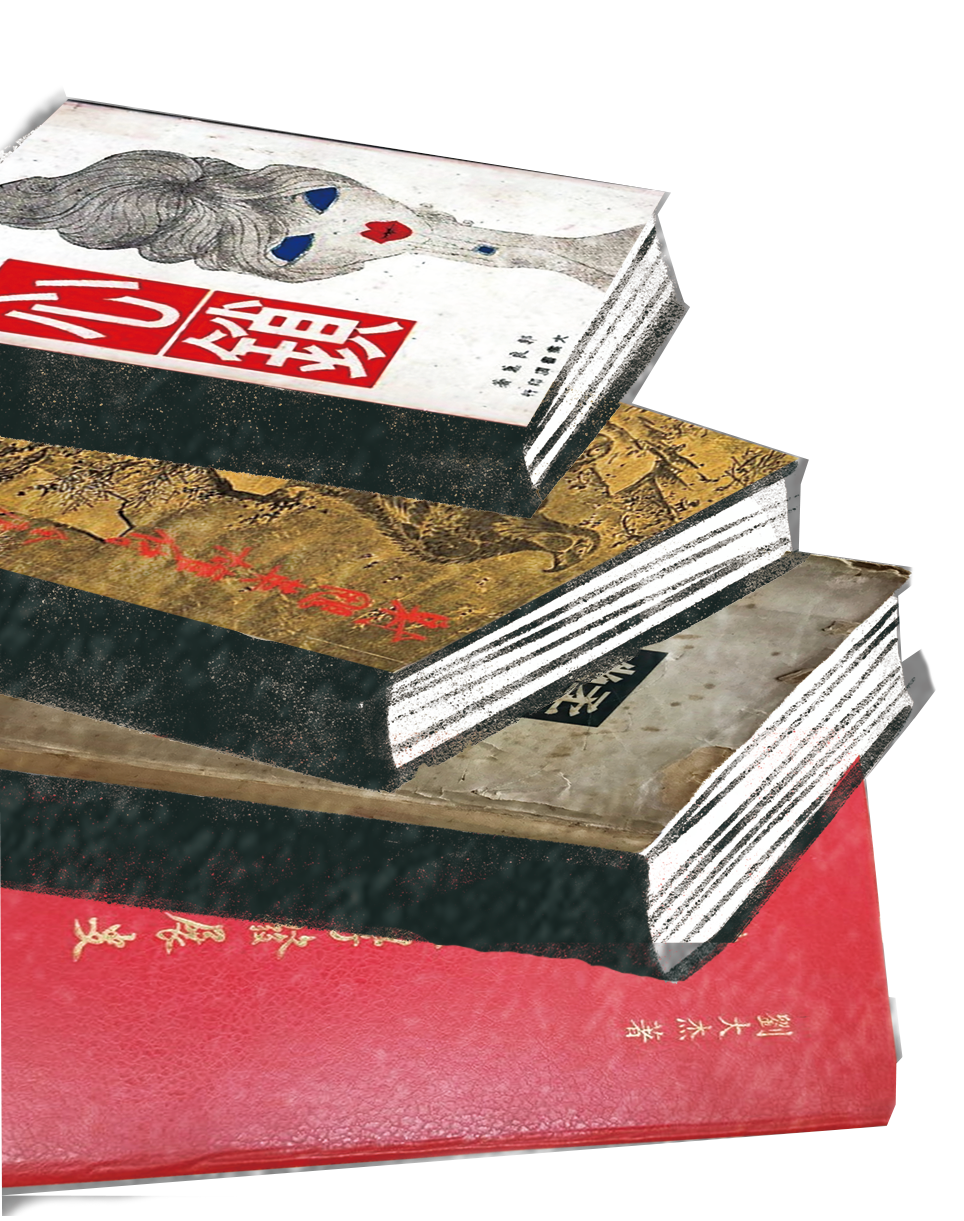 Banned before It Could be Published
Banned before It Could be Published
During the February 28th Incident in 1947, the conflicts in society reached peak levels. During the April 6th Incident in 1949, the government arrested a great number of students from National Taiwan University and Taiwan Provincial Normal University to quell the emerging student activism. LONG AN LITERATURE, the publication founded by the Taiwanese Drama Society of Taiwan Provincial Normal University, was affected. To prevent being involved, members such as Tsai Teh-pen proactively retrieved the printed copies of the publication and burnt them together.
Lin Heng-tai's Japanese poetry collection, THE SOUND OF SOUL, was also among those that were affected by the April 6th Incident. Lin knew that this book would be banned so he asked his family to burn hundreds of printed copies. Only a few of them have survived to this day.
When Lu Ho-jo began working at an underground organization after WWII, his family was worried about being connected to his doing so they hid his manuscripts and books under the lychee tree at their old home in Taichung. The only kept journal was preserved because it recorded the birthdays of his children.
Yang Kuei issued the "Declaration of Peace" in 1949, hoping to resolve the disputes among people from different parts of China and to keep the peace in Taiwan; however, this work led to his imprisonment. Yang Kuei once joked that the royalty of the "Declaration of Peace" was high as the work caused him to spend decades in jail.
This situation was in fact very common at the time. Even if an author's book was not banned, he or she must keep on probing the furthest limit of what was allowed or would keep silent. The following decades marked the grimmest period of restrictions on expression.
